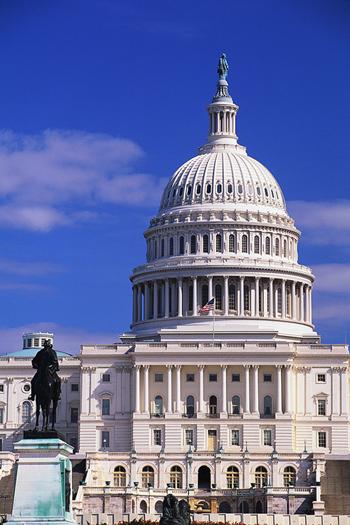2011 was so much fun in Congress. Will 2012 offer the same? The House of Representatives convened on Tuesday, January 17th, and the Senate will return next week. The fun hasn’t quite started yet, but it will and it will be loud.
Here are my economic predictions for 2012:
• Last month, Congress extended the payroll tax cut that saves the average American family $1,000 per year. It expires again in a few weeks. Expect another cliff hanger. It will be extended through December. The debate will be contentious, and its outcome will hinge on a political fight disguised as an economic fight. Republicans still want the oil pipeline from Canada to Texas with minimal environmental study, and Democrats still want to increase tax on millionaires. Same old, same old.
• The debt ceiling was increased last August – but only for a few months – after almost throwing international markets into turmoil. The time has come to do it again. This time, Congress will do it without threatening to blow up the economy. With an election in progress, many will make incendiary speeches about wasteful government spending. After a short round of shouting, Congress will approve the increase.
• In March, President Obama will present his 2013 budget, showing more large deficits driven by high safety net costs and reduced revenues related to the poor economy. The president’s annual budget has no legal impact, so it will only become a source for making speeches. All of the Republican presidential candidates are attaching themselves to President Reagan’s coattails. Interestingly, of the eight budgets President Reagan prepared, Democratic Congresses passed budgets with lower deficits in seven of those eight years.
• The two largest banks in the country, Bank of American and Citibank, are underwater like many of their mortgage borrowers. The market says they are worth a lot less than the value on their books. With only three large U.S. banks still standing, our nation’s economy is dependent upon them. So, they are truly too big to fail. As long as they are sick, the entire banking world will suffer, loans will be hard to come by and the economy can only sputter.
• For every foreclosed house on the market, banks have almost two more that could go into foreclosure. Pushing all of them into the market will harm both the banks and the housing market even more. Declining real estate values have not only decimated the construction industry but have pushed local governments and school systems to the brink. This pattern will continue in 2012.
• Real estate sits underneath every job. Because banks are nervous about lending and foreclosures have created an overload of housing stock, the demand for new real estate construction is very restrained. Real estate will not recover in 2012. Thus, job growth will be limited, and the unemployment rate will remain well above acceptable levels.
• Occupy Wall Street has, if anything, upset people about the increasing wealth gap between rich and poor. Occupy Wall Street will die down as the year goes on. Consumer confidence will improve somewhat, but it will be an anemic and nervous improvement because most new job creation will be in low-paying service sector jobs.
• Every presidential candidate and most politicians are promising that they can simplify the tax code by closing loopholes (which increase tax collections) and reducing rates (which decrease tax collections). At first, so-called tax loopholes are born as tax incentives. It’s an indirect way that government picks winners and losers. As incentives age, they become loopholes. Those loopholes have armies of lobbyists. It is hard to take away what has been given. The tax code will not change much.
• Last August, Congress appointed a super committee to identify $1.2 trillion in budget cuts with automatic cuts – half from defense and half from domestic spending – to begin in 2013 if the super committee failed. It failed. Regardless of who wins, that deal will be re-written after this November’s election.
• The Bush tax cuts are scheduled to expire at the end of this year. If they expire, the deficit will be reduced by $4 trillion over the next ten years, ironically the amount that most agree should trimmed from the budget. 90 percent of those tax cuts went to those earning over $250,000. Republicans want to make them permanent arguing that they are necessary for job creators. Democrats want to preserve the tax cuts for those earning below $250,000. Expect a colossal fight as the year closes.


